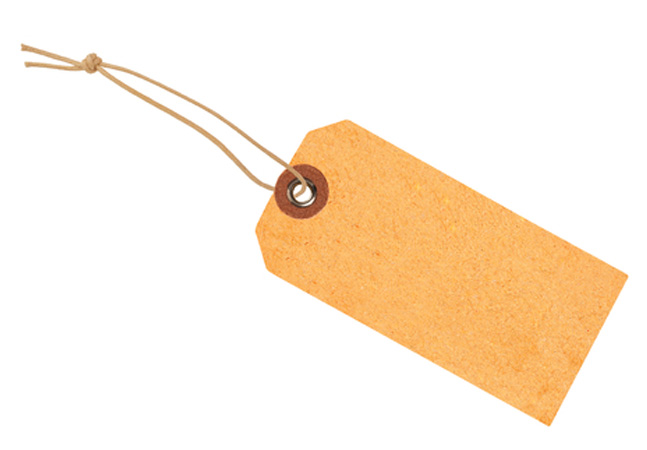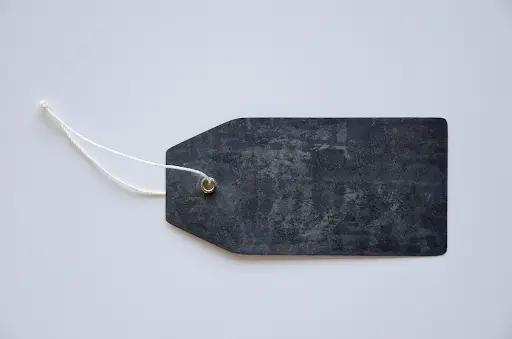Tag Grading - A Clear Look At Card Condition
For anyone who collects cards, knowing exactly what you have is a big deal, and getting a clear idea of a card's actual state can feel like a guessing game sometimes. That's where something called "tag grading" comes into the picture, offering a way to look at collectible cards with a very precise approach. It’s all about making the process of figuring out a card’s condition much more open and easy to see, which is something many collectors really appreciate, you know, for peace of mind.
This system, which is actually named "Technical Authentication & Grading, LLC," uses some pretty clever ways to give cards a score. Instead of relying on just one person's eyes, it brings in computer vision technology, so, too it's almost like giving your card a very thorough check-up with super-powered sight. This means you get a score that is based on a lot of detailed information, making it easier to trust what you are told about your card, as a matter of fact.
When you get a card looked at by tag grading, you receive a very detailed score, which is on a scale that goes all the way up to 1000 points. This kind of detailed scoring helps you see exactly where your card stands, and you can even find out how a really great card, like one that scores a "gem mint 10" with tag, stacks up against others on their special leaderboards. It really gives you a much better sense of where your card fits in the bigger picture, so to speak, in some respects.
Table of Contents
- What Makes Tag Grading Different?
- How Does Tag Grading Give You a Score?
- Can You Get Cards Graded in Person with Tag Grading?
- Common Questions About the Tag Grading System
- Why Are Collectors Talking About Tag Grading?
- Tag Grading Compared to Other Services
- The Big Picture of Tag Grading
What Makes Tag Grading Different?
One of the main things that sets tag grading apart is its dedication to being really clear about how cards are judged. They use something called "patented computer vision technology," which means machines are doing a lot of the looking, not just people. This approach helps make sure that every card gets a fair shake, giving you a very dependable score. You get to look at things like any little marks or spots, how well the card is centered, and what the corners and edges are like, too, which is pretty neat.
This method of looking at cards, which involves something called "photometric stereoscopic imaging," gives tag grading a way to assess condition that is, well, pretty much unmatched. It's like they can see every tiny detail on the card's surface. The whole idea behind tag grading is to set a standard that is based on facts, for how collectible cards are evaluated. They want to be the go-to source for a truly objective opinion on a card’s condition, you know, something you can really count on. It's about taking out the guesswork, so you can feel really good about what your card is rated.
How Does Tag Grading Give You a Score?
When your card goes through the tag grading process, you get something called a "Digital Image and Grading (DIG) report." This report is really helpful because it breaks down exactly why your card got the grade it did. It points out any specific little flaws that were found, especially those that had a bigger impact on the overall score. These little flaws are sometimes called "dings," and the report will show you exactly where they are and why they matter for your card's final assessment, which is pretty transparent, in fact.
The clever technology that tag grading uses, the kind that has patents on it, helps them give grades that are really spot-on. This means that every person who collects cards can feel pretty sure about the actual state of their cards. It’s about making sure that when you get a grade, it’s a true reflection of the card’s condition, not just someone’s best guess. This helps build trust in the whole process, and that, is that, is really important for collectors who care a lot about their cards.
Can You Get Cards Graded in Person with Tag Grading?
When it comes to getting cards looked at in person, that's often something people wonder about. If you happen to live in the United States, it is possible, you know, to have your cards graded face-to-face by some of the bigger companies that do this kind of work. It’s also something that might be possible in other parts of the world, too, but it often depends on whether there’s a card show happening where these grading companies are set up to offer their services. It’s a matter of timing and location, basically. The information provided doesn't specify if Tag Grading, LLC itself offers this in-person service, but it does mention it as a general possibility within the grading world.
Common Questions About the Tag Grading System
People often have a bunch of questions when they are thinking about using a new system for their cards, and the tag grading system is no different. It’s natural to want to know more about how things work, especially when you are trusting someone with your valuable collectibles. So, let's look at some of the things people frequently ask about this particular way of assessing cards, because, you know, it helps to be informed, and stuff.
Does Tag Grading Have a Community Spot?
One question that comes up is whether tag grading has a place where collectors can chat, like a message board or a group online. People often like to connect with others who share their interests, talk about their experiences, and maybe even get some advice. While the information we have doesn't actually say if tag grading has its own official community group or message board, it's a common thing for companies in this area to think about. Collectors often appreciate having a space to discuss their cards and the grading process, you know, to share their excitement or ask questions, pretty much.
Does Tag Grading Use Advanced Programs for Card Assessment?
Another common question is whether tag grading uses something like "AI" or other advanced computer programs to look at cards. The answer, based on what we know, is that tag grading does use sophisticated computer vision technology, which is a kind of advanced program that helps them assess cards. This means that instead of just relying on human eyes, they use really precise digital tools to check every detail. This helps them give scores that are very consistent and fair, aiming to take out any human differences that might pop up. It's about using the best tools available to get a really good look at each card, honestly.
Does Tag Grading Work with Older Cards?
Collectors who have cards from way back, like "vintage cards," often wonder if the tag grading system can handle those. Older cards can be a bit different in terms of their material and how they've aged, so it's a very fair question to ask if this system is set up for them. The provided information poses this question as one that people ask, suggesting it's a point of interest for those with cards from different eras. It's important for collectors to know if their older treasures can also benefit from this precise way of assessing condition, so, naturally, it comes up.
How Does Tag Grading Handle Cards That Might Be Changed?
Sometimes, cards might have been altered or "trimmed," meaning someone changed their original size or appearance. This is a pretty big concern for collectors, as it can affect a card's authenticity and value. People often ask how tag grading deals with cards that might have these kinds of changes. Knowing that a grading service has a clear way to spot and handle cards that aren't in their original state is really important for maintaining trust and fairness in the hobby. It’s about making sure that what you think you have is truly what it is, you know, without any hidden surprises.
Does Tag Grading Look at Thicker Cards and Patch Cards?
Not all cards are the same thickness; some, like "patch cards," are noticeably thicker because they have a piece of memorabilia embedded in them. This makes people wonder if the tag grading system can properly assess these different kinds of cards. It’s a good point, because a system designed for thinner cards might not work as well for those with more bulk. Collectors want to be sure that all their cards, no matter how thick or what special features they have, can get a proper and fair evaluation from tag grading. It's about versatility, basically, and being able to handle a wide variety of what's out there.
What About The Gathering or Other Trading Cards?
The world of trading card games is pretty big, with many different types of cards out there, like those from "The Gathering" or other popular card games. People who collect these kinds of cards often want to know if the tag grading system is suitable for them. It’s a question about scope, you know, whether the system is just for sports cards or if it covers a wider range of collectible trading cards. This is an important detail for many collectors, as it helps them figure out if tag grading is the right choice for their particular collection, which, you know, makes sense.
Why Are Collectors Talking About Tag Grading?
It seems collectors are really starting to notice tag grading, and there are some clear reasons why people are talking about it so much. When you look at what collectors are saying, you find that many are quite happy with the precision of the assessments, the overall feel of the protective cases the cards come in, and the help they get from the service team. There are even six real reviews that people can check out, which talk about how good the assessments are, the quality of the slabs, and how helpful the service is. It’s pretty clear that people are really pleased with what tag grading offers, apparently.
A big part of why collectors are so enthusiastic about tag grading is what comes with each card once it's been looked at. Every card that gets put into one of their protective cases also comes with a very thorough digital report. This report is quite helpful because it goes into detail about why the card got the specific grade it did. It’s like getting a full explanation, so you understand the thinking behind the score. This level of openness is something collectors really value, because it takes away a lot of the mystery, and that, is really helpful, to be honest.
Tag Grading Compared to Other Services
For collectors who are always looking for the best way to get their cards looked at, the conversation about tag grading versus other well-known services like PSA and CGC has become a very popular topic. People who collect Pokémon cards, sports cards, or other kinds of trading card games are often trying to figure out which service is the top choice for them. It's a discussion that covers quite a bit of ground, as a matter of fact, because there are several aspects to think about when choosing where to send your cards.
When people compare these different companies, they often look at how each one uses technology, how open they are about their methods, what they charge, and what kind of overall value you get for your money. Tag grading, for example, emphasizes its unique technology and how transparent it tries to be with its reports. This comparison helps collectors weigh the pros and cons of each service, helping them decide what matters most for their own valuable collections. It's about finding the right fit, you know, for what you want to achieve with your cards, more or less.
Something interesting about cards that go through the tag grading system is that they can come with something called "DIG Plus." This is a much more detailed report compared to an earlier version, "TAG X," giving collectors even more information about their cards. On top of that, these cards also get included in leaderboards and rankings. This means you can see where your submitted card stands against others, which is pretty cool for those who enjoy seeing how

Using vSphere Tags -- Virtualization Review

Everything You Need to Know About How Marketing Tags Work | Wildfire

Free Stock Photo 13137 Gift tag on a string | freeimageslive